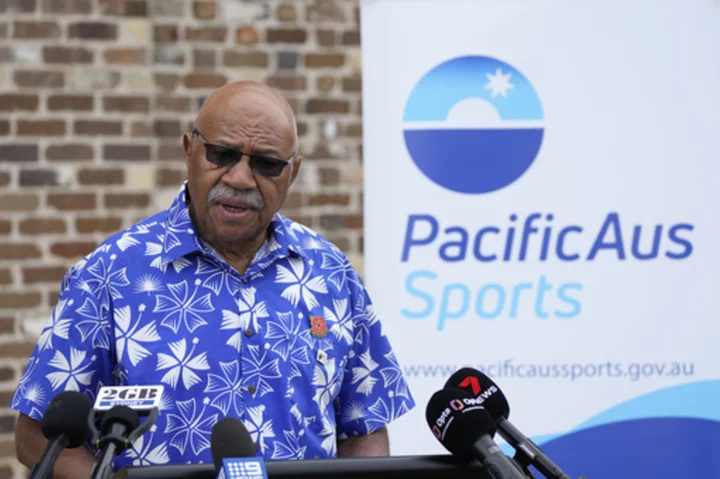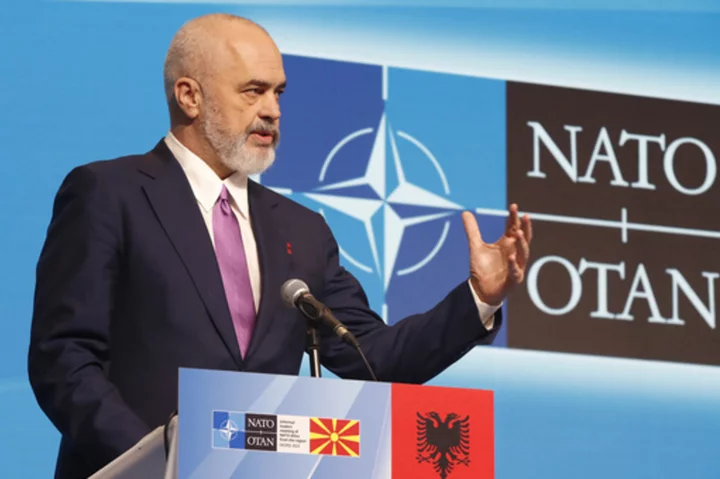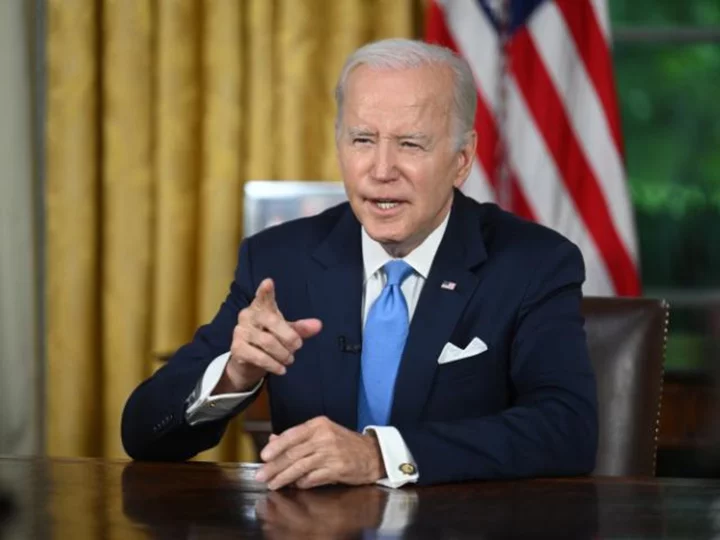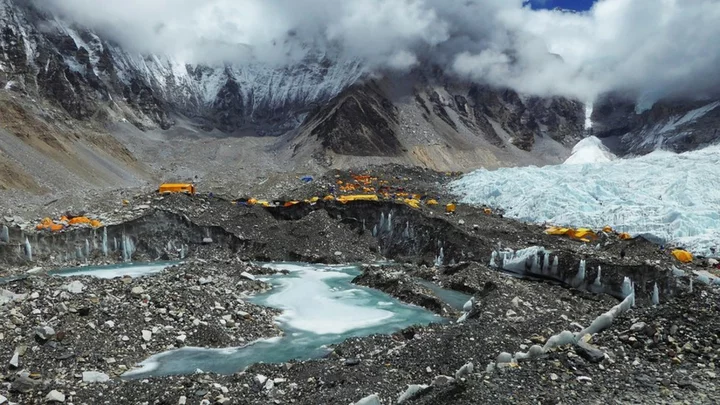CANBERRA, Australia (AP) — Fiji’s prime minister said Tuesday he hopes Australia's acquisition of a fleet of submarines powered by U.S. nuclear technology will enhance peace in the Pacific region but stopped short of endorsing the increased military cooperation with the United States.
Prime Minister Sitiveni Rabuka said he will discuss with Australian Prime Minister Anthony Albanese on Wednesday how a “zone of peace” could be established in the vast expanse of the Pacific Ocean, including the two countries plus 16 other island nations that make up the Pacific Islands Forum bloc.
Increased Chinese and U.S. military engagement is adding to tensions in the region.
Questioned during an address to the Lowy Institute foreign policy think tank in Canberra, Rabuka said his government had not backed the signing of a three-way agreement involving the United States and Britain to provide nuclear-powered submarines to Australia.
Rabuka said Albanese gave him one day’s notice that the so-called AUKUS agreement would be signed in San Diego in March.
“I was not part of the planning. I’m in no position to try to stop it. This is a tripartite strategic project,” Rabuka said.
“All I can do is hope that this project will assist the concept of the zone of peace in the Pacific,” he said.
Rabuka said he will propose that the Pacific Islands Forum endorse his zone of peace proposal at a meeting in the Cook Islands in November.
The proposal could include nations refraining from actions that jeopardize regional order and stability while respecting neighbors’ sovereignty and territorial integrity, he said.
Australia and the United States have stepped up their diplomatic engagement with the South Pacific after China struck a security pact with Solomons Islands last year that raised fears of a Chinese naval base being established in the region.
Under the AUKUS agreement, Australia will buy three Virginia-class submarines from the United States and build five new AUKUS-class submarines in cooperation with Britain in response to China’s growing influence in the region.









